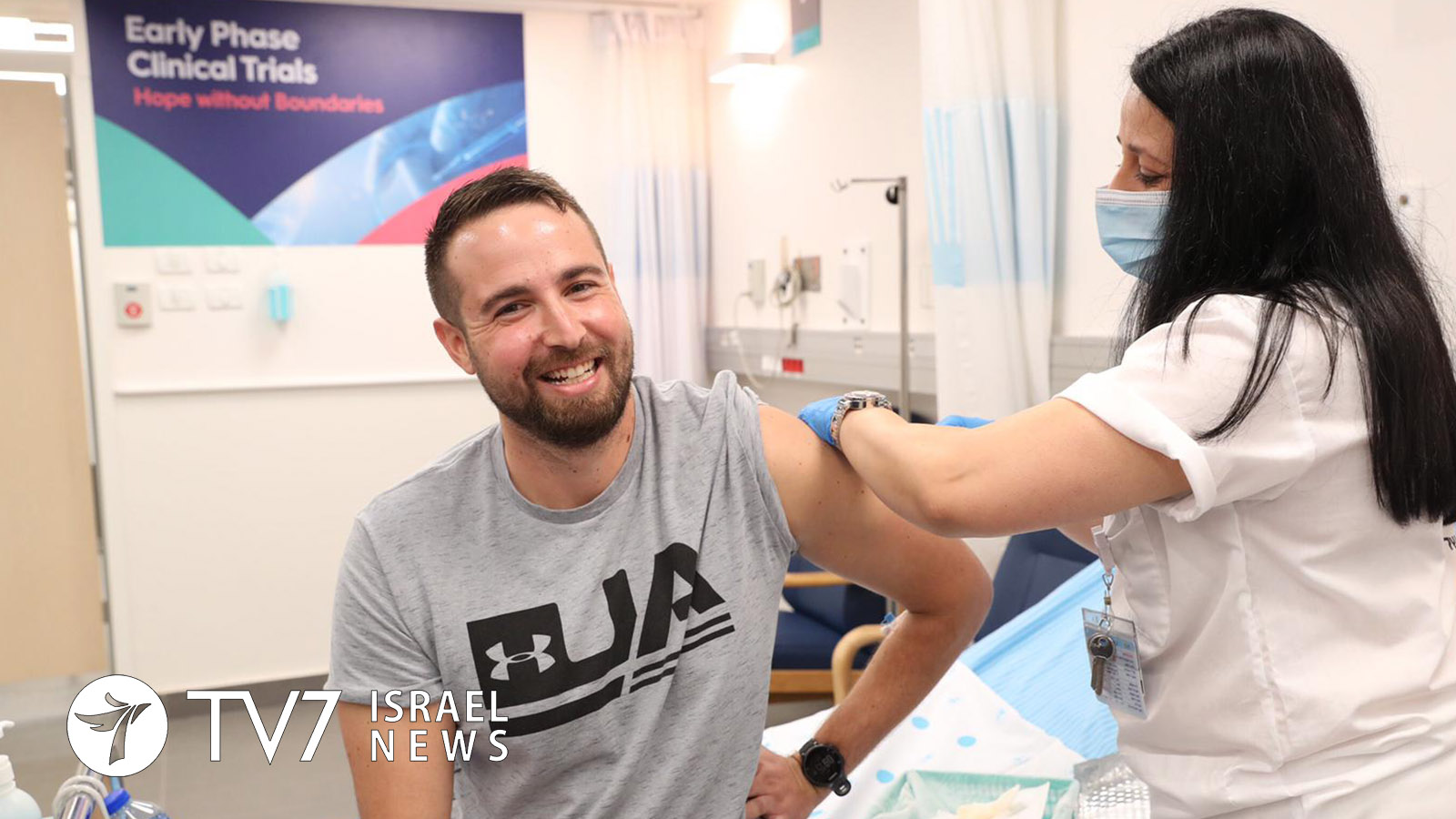Human clinical trials of a COVID-19 vaccine have begun at Israel’s Institute for Biological Research (IIBR) in Ness Ziona. The institute, which is overseen by the Defense Ministry (IMoD), began animal trials for its “BriLife” vaccine in March and announced a week ago it had received regulatory approval to take it to the next stage.
80 volunteers between the ages of 18 to 55 will participate in the initial phase, which is being held at the Hadassah Medical Center in Jerusalem and the Sheba Medical Center at Israel’s largest hospital, Tel HaShomer, near Tel Aviv.
A second stage will be expanded to include 960 Israelis in December.
30,000 people will be tested in the third stage in April and May. The testing will be moved abroad to a nation with a high COVID-19 infection rate said IIBR Director General Prof. Shmuel Shapira, who underscored that, “we are in the final stretch.”
According to the Head of IIBR’s Biology Division Shmuel Yitzhaki, if all goes as expected the Israeli vaccine could reach the general population by the end of next summer.
Prime Minister Benjamin Netanyahu, Alternate Premier and Defense Minister Benny Gantz and Health Minister Yuli Edelstein were all present when the first BriLife dose was administered to a 26-year-old Segev Harel of Kibbutz Sde Nehemia.
“What is important is that one way or another, through domestic production or through deliveries of vaccines from abroad, we provide vaccines to all Israeli citizens,” said Prime Minister Netanyahu, adding that “I see the light at the end of the tunnel now, this will be the real way out of this crisis.”
He went on to point out that “Israel was one of the first countries in the world to impose a lockdown,” and that “now that we’re exiting it, other countries are entering. Almost all of Europe is entering a closure of some sort.” He also vowed that additional government measures will be unveiled to help local independent businesses rejoin the economy, which has been hard hit by the pandemic.
According to a statement TV7 received from the Defense Ministry, Gantz voiced “cautious optimism,” saying, “optimism, because I think excellent work is being done by our top scientists across the board, all of whom are giving their very best,” and “cautious, because this is still a long and uncertain process. It will take time to track, to process the data, and to draw meaningful conclusions, and it will require patience.”
Reaffirming the Prime Minister’s call for continued compliance with ongoing government restrictions, Gantz stressed that, “we need the public’s cooperation in following the regulations so that we can contend with the situation we’re in, bring down infection rates to whatever degree possible, and reopen the economy. From our end, the IMoD is out there on the ground in municipal authorities throughout Israel, offering assistance, overseeing efforts to import all the supplies we need. We’re looking at starting a local production line of supplies to bring the system to maximal effectiveness and productivity as well.”
Gantz revealed that “Israel’s Vaccination Patient Zero,” Segev Harel, had appealed to him, “Help us. I’m here because I needed to tell you to help us. I’ve changed jobs three times over the few months before getting vaccinated. Please get an economic plan rolling.”
In a statement directed at his coalition partner, the Defense Minister then said, “Mr. Prime Minister, I say to you that we cannot stop at protecting our security, we cannot stop at protecting our health, we need to help the economy, with an immediate 2021 economic recovery plan. Every day that passes is a lost day which deepens the economic load on Israeli citizens without any justification. I hope we can find the right way to move forward and just as we protect our security together, and just as we are fighting this coronavirus together, we can also help the economy together…That is the way to protect the society that we cherish so much and which we see unraveling in front of our eyes.”
As the first group of volunteers were vaccinated, elementary students across the country are returning to school as part of the gradually ending of Israel’s second, month-long nationwide lockdown. First through fourth graders were the first to return to school on Sunday, although older children are still learning from home.
The government also approved the reopening in stages of businesses and recreational activities in the country, which has a population of 9 million, amid a steady decline in the rate of daily infections.
The country reported 294 new cases over the past 24 hours – down from a peak of more than 9,000 several weeks ago. 15 more Israelis have died of the disease, bringing the total death count to 2,569 since the outbreak of the pandemic.
